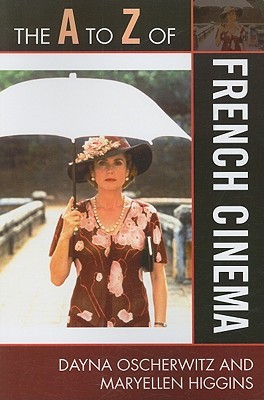
- We will send in 10–14 business days.
- Author: Dayna Oscherwitz
- Publisher: Scarecrow Press
- ISBN-10: 081086875X
- ISBN-13: 9780810868755
- Format: 13.7 x 21.3 x 3.3 cm, softcover
- Language: English
- SAVE -10% with code: EXTRA
Reviews
Description
It can be argued that cinema was created in France by Louis Lumière in 1895 with the invention of the cinématographe, the first true motion-picture camera and projector. While there were other cameras and devices invented earlier that were capable of projecting intermittent motion of images, the cinématographe was the first device capable of recording and externally projecting images in such a way as to convey motion. Early films such as Lumière's La Sortie de l'usine, a minute-long film of workers leaving the Lumière factory, captured the imagination of the nation and quickly inspired the likes of Georges Méliès, Alice Guy, and Charles Pathé. Through the years, French cinema has been responsible for producing some of the world's best directors-Jean Renoir, Jean-Luc Godard, François Truffaut, and Louis Malle-and actors-Charles Boyer, Catherine Deneuve, Gérard Depardieu, and Audrey Tautou. The A to Z of French Cinema covers the history of French film from the silent era to the present in a concise and up to date volume detailing the development of French cinema and major theoretical and cultural issues related to it. This is done through a chronology, an introduction, photographs, a bibliography, and hundreds of cross-referenced dictionary entries on many of the major actors, directors, films, movements, producers, and studios associated with French cinema. Going beyond mere biographical information, entries also discuss the impact and significance of each individual, film, movement, or studio included. This detailed, scholarly analysis of the development of film in France is useful to both the novice and the expert alike.
EXTRA 10 % discount with code: EXTRA
The promotion ends in 17d.15:11:10
The discount code is valid when purchasing from 10 €. Discounts do not stack.
- Author: Dayna Oscherwitz
- Publisher: Scarecrow Press
- ISBN-10: 081086875X
- ISBN-13: 9780810868755
- Format: 13.7 x 21.3 x 3.3 cm, softcover
- Language: English English
It can be argued that cinema was created in France by Louis Lumière in 1895 with the invention of the cinématographe, the first true motion-picture camera and projector. While there were other cameras and devices invented earlier that were capable of projecting intermittent motion of images, the cinématographe was the first device capable of recording and externally projecting images in such a way as to convey motion. Early films such as Lumière's La Sortie de l'usine, a minute-long film of workers leaving the Lumière factory, captured the imagination of the nation and quickly inspired the likes of Georges Méliès, Alice Guy, and Charles Pathé. Through the years, French cinema has been responsible for producing some of the world's best directors-Jean Renoir, Jean-Luc Godard, François Truffaut, and Louis Malle-and actors-Charles Boyer, Catherine Deneuve, Gérard Depardieu, and Audrey Tautou. The A to Z of French Cinema covers the history of French film from the silent era to the present in a concise and up to date volume detailing the development of French cinema and major theoretical and cultural issues related to it. This is done through a chronology, an introduction, photographs, a bibliography, and hundreds of cross-referenced dictionary entries on many of the major actors, directors, films, movements, producers, and studios associated with French cinema. Going beyond mere biographical information, entries also discuss the impact and significance of each individual, film, movement, or studio included. This detailed, scholarly analysis of the development of film in France is useful to both the novice and the expert alike.


Reviews